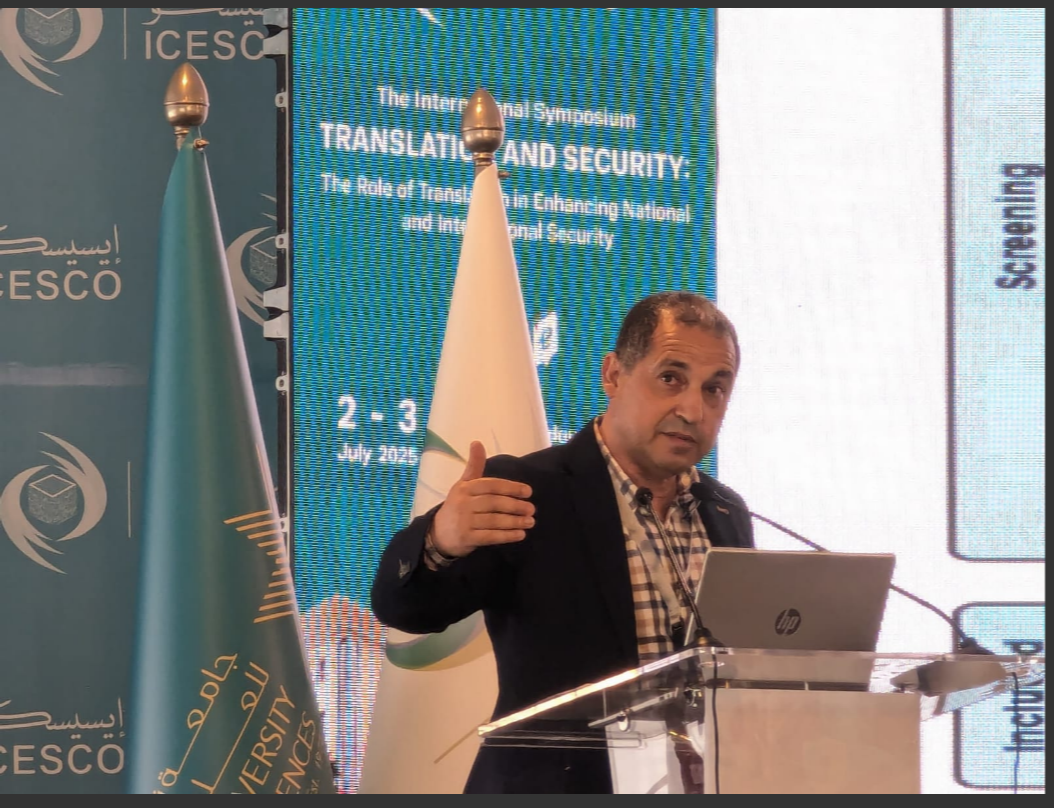Apart from the Alsun school of translation in Egypt, translator training at the institutional (university) level in the Arab World emerged as a result of globalisation and changes in higher education after the eighties and early nineties. In the Gulf countries, these programs emerged in a mass scale after the millennium (some of them during the nineties). Nevertheless, there is worrying educational and professional issues that might result because of the lack of understanding of some of the major tenants of setting a professionally oriented translation program within a university context. These can be summarised as follows:
- Specificities of the local context (country, the profession, university, society, students and economy) will be taken into consideration when designing, developing and implementing (including assessing/evaluating) the program.
- Clear course and program outcomes (skills) need to be set and justified; faculty need to know exactly why they choose the skills ( or as it is the usual case : subjects or contents) to develp or knwoledge to taransfer/ content and material/ as well as the methods of assessing the previous. Preferably, he or she needs to explain the link between content/activities/objectives/assessment methods to the students to involve them in the educational experience. Nevertheless, this specific point may be an issue for faculty who themselves lack subject specific knowledge ( Knowledge of the field in its academic aspect : knowledge of translation studies as a field of study and research, as well as knowledge of recent translation approaches in the field). Sometimes, the lack of sufficient real world experience as professionals (in-house or freelance ) could also make things difficult to the success of the experience.
- Importance of a specific type of pedagogy for teaching translation/training translators. The Lectures only mode is noy suficient to achieve significant learning and performance outcomes in the case of a translation teaching context. Translation is a profession. It has standards that need to be taken into consideration, and there are requirements on a certain set of competencies that need to be integrated in the curricula and faciltated . Therefore, we envisage that the most suitable teaching method could be a mix of training, teaching and education to respond to the complex type of translation and translator competence. Students in the program (usually English Department) will- at the end of the program- be not only L2 proficient but multifaceted communicators and agents of cross-cultural communication. Also, they will be exposed directly to society : interpreting in courts, hospitals, translation of official or non-official documentation to ' make things happen ' in society and between nations and people globally. Sometimes, and this is taking place widely during the 21st century, students could be entrepreneurial language service providers by setting their own tranlsation bureau . Therefore, the stake is more than finding equivalents between source and target texts or transferring meanings, but it is more than that. The agent( the translator) has a role to play as well in all these. His impact is hardly highlighted in the Arabic context, especially in a university context. Due to existing disciplinary ideologies in all departments (any departments -really), the priority was given to textual matters instead. Nevertheless, a well balanced approach is needed when teaching the translation phenomena. This in itself reflects the nature of the discipline which is multifaceted and multidisciplinary, because of its youth.
- When teaching theories of translation (or any theoretical component; TRANSLATION STUDIES ) in a translation program, it is important to bring into the equation practise as well. This is a very challenging point for the teacher/faculty. Nevertheless, the student could benefit better from the quasi-theoretical course and stay tuned and engaged if this link between theory and practise taking place in the classroom. Again, teachers' professional background could be very important in this case . That is why reviewing faculty's knowledge framework (professional, disciplinary and pedagogical) is of great importance to the success of the education experience in the program. This might be a tough criteria to abide by since Translation as a discipline is a recently established area in the academic context and there is a lack of Human resources properly trained to service in a university context. This problem becomes alarming now with the considerable increase in the numbers of many translation programs at university level.
- As for practical courses, research in translation pedagogy has criticised the traditional method of teaching translation in a classroom context within higher education. Don Kiraly (1995, 2000, 2003) argued against the use of what Ladmirale calls (Performance Majistral) or ( lecturing) and the use of the ' read and translation' method, and the final 'correct' solution will be in the hands of the teacher ( the main and unique source of knowledge). Kiraly(2000) proposed the project based methods instead to reflect the real world practise of translation. Students divided in project teams assume various roles (translator, reviser, terminologist) when undertaking such tasks.
- Educationally and professionally speaking, this might be a sound approach, nevertheless I am not sure how often this new method is used in Arab based translation programs and whether it can be adapted smoothly in our context.

